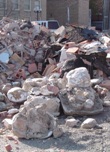 While I’ve adjusted to my chronic health condition, an auto-immune disease so rare that only 400 people in the US have been diagnosed with it in the past 20 years, I still struggle with facing death. Eventually it will come, whether with warning or not; and I hope it’s far in the future, after I finish the 20 or so novels I have planned.
While I’ve adjusted to my chronic health condition, an auto-immune disease so rare that only 400 people in the US have been diagnosed with it in the past 20 years, I still struggle with facing death. Eventually it will come, whether with warning or not; and I hope it’s far in the future, after I finish the 20 or so novels I have planned.
But I have a number of friends who are living with much more serious diagnoses. As I’ve watched them move first from verdict to acceptance, I think they become more aware of the “one day at a time” philosophy and value the flow of life and the good things they have. One man, whose relationship with us extends over many years but has been extremely casual, now takes the time to add a word of thanks for a meeting. Several others now meditate regularly and mention the peace and joy they gain.
Perhaps once you’ve faced death, you don’t fear it. I think about other extreme situations that can occur in life—divorce, getting fired, going broke. I know (from some experience as well as observation) before these incidents happen, you can feel terrified, paralyzed. After you get through them, you no longer panic.
So I’m trying to view the cycle of life and death as a propitious* AFGO. That’s the term coined by a former boss for every new challenge—Another Freakin’ Growth Opportunity. Live and learn, right?
* Propitious: favorable, auspicious.
